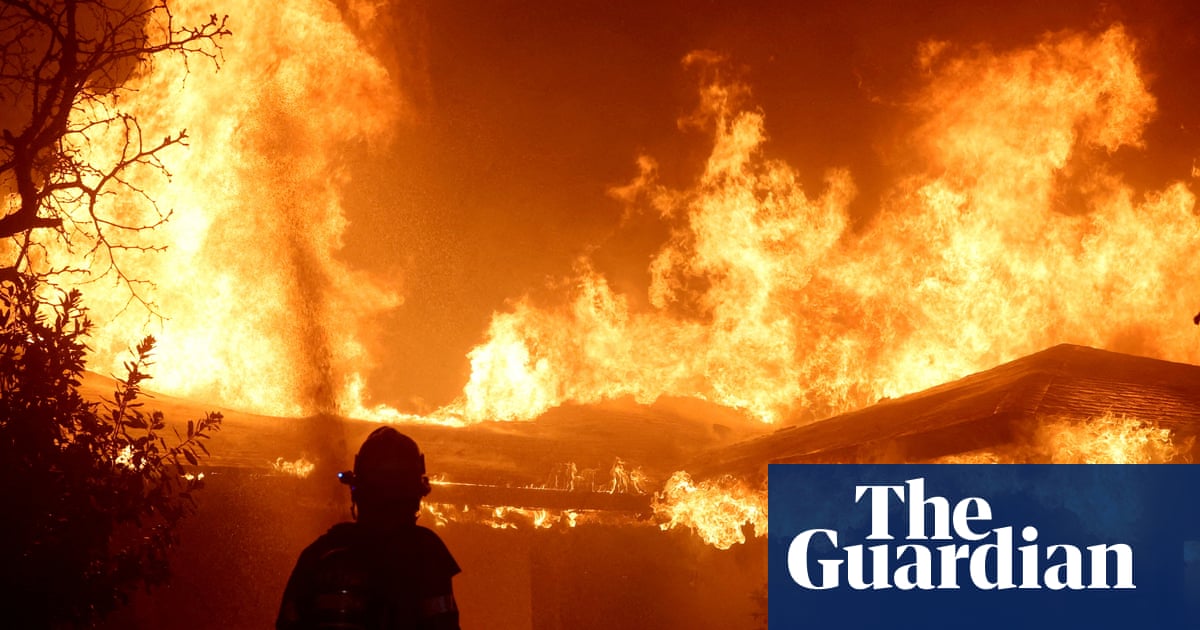The planet’s remaining carbon budget to meet the international target of 1.5C has just two years left at the current rate of emissions, scientists have warned, showing how deep into the climate crisis the world has fallen.
Breaching the target would ramp up the extreme weather already devastating communities around the world. It would also require carbon dioxide to be sucked from the atmosphere in future to restore the stable climate in which the whole of civilisation developed over the past 10,000 years.
The carbon budget is how much planet-heating CO2 can still be emitted by humanity while leaving a reasonable chance that the temperature target is not blown. The latest assessment by leading climate scientists found that in order to achieve a 66% chance of keeping below the 1.5C target, emissions from 2025 onwards must be limited to 80bn tonnes of CO2. That is 80% lower than it was in 2020.
Emissions reached a newrecord high in 2024: at that rate the 80bn tonne budget would be exhausted within two years. Lags in the climate system mean the 1.5C limit, which is measured as a multi-year average, would inevitably be passed a few years later, the scientists said.
Scientists have beenwarning for some timethat breaching the 1.5C limit isincreasingly unavoidableas emissions from the burning of fossil fuels continue to rise. The latest analysis shows global emissions would have to plummet towards zero within just a few years to have any decent chance of keeping to the target. That appears extremely unlikely, given that emissions in 2024 rose yet again.
However, the scientists emphasised every fraction of a degree of global heating increases human suffering, so efforts to cut emissions must ramp up as fast as possible.
Currently, the world ison track for 2.7Cof global heating, which would be a truly catastrophic rise. The analysis shows, for example, that limiting the rise to 1.7C is more achievable: the carbon budget for a 66% chance of keeping below 1.7C is 390bn tonnes, which is about nine years at the current rate of emissions.
“The remaining carbon budgets are declining rapidly and the main reason is the world’s failure to curb global CO2 emissions,” said Prof Joeri Rogelj, at Imperial College London, UK. “Under any course of action now, there is a very high chance we will reach and even exceed 1.5C and even higher levels of warming.”
“The best moment to have started serious climate action was 1992, when the UN [climate] convention was adopted,” he said. “But now every year is the best year to start being serious about emissions reduction. That is because every fraction of warming we can avoid will result in less harm and suffering, particularly for poor and vulnerable populations, and in less challenges to living the lives we desire.”
Rogelj said it was crucial that countries commit to big emissions cuts at the UNCop30climate summit in November.
Thehottest year on record was 2024, fuelled by increasing coal and gas burning, and setting an annual average of 1.5C for the first time. There is no sign yet of the transition away from fossil fuels promised by the world’s nations at Cop28 in Dubai in December 2023.
Sign up toDown to Earth
The planet's most important stories. Get all the week's environment news - the good, the bad and the essential
after newsletter promotion
Solar and wind energy production is increasing rapidly and has precluded previous worst-case scenarios of 4-5C of global heating. But energy demand is rising even faster, leading to more fossil fuel burning andturbo-charging extreme weather disasters.
The analysis, produced by an international team of 60 leading climate scientists, is an update of thecritical indicators of climate changeand ispublished in the journal Earth System Science Data. It aims to provide an authoritative assessment, based on the methods of the Intergovernmental Panel on Climate Change, but published annually unlike the intermittent IPCC reports, the most recent of which was 2021.
The study found that the Earth’s energy imbalance – the excess heat trapped by the greenhouse effect – has risen by 25% when comparing the past decade with the decade before.
“That’s a really large and very worrying number,” said Prof Piers Forster, at the University of Leeds, UK, and lead author of the study. “I tend to be an optimistic person. But things are not only moving in the wrong direction, we’re seeing some unprecedented changes and acceleration of the heating of the Earth and sea level rise.”
Sea level rise has doubled in the past 10 years, compared with the period 1971-2018, the analysis found, rising to 4mm per year. Theflooding of coasts will become unmanageableat 1.5C of global heating and lead to “catastrophic inland migration”, a study in May found.
Sea level is rising because about 90% of global heating is absorbed by the oceans, making the water expand, and because the climate crisis is melting glaciers and ice caps.
Dr Karina Von Schuckmann, at Mercator Ocean International, said: “Warmer waters also lead to intensified weather extremes, and can have devastating impacts on marine ecosystems and the communities that rely on them. In 2024, the ocean reached record values globally.”
